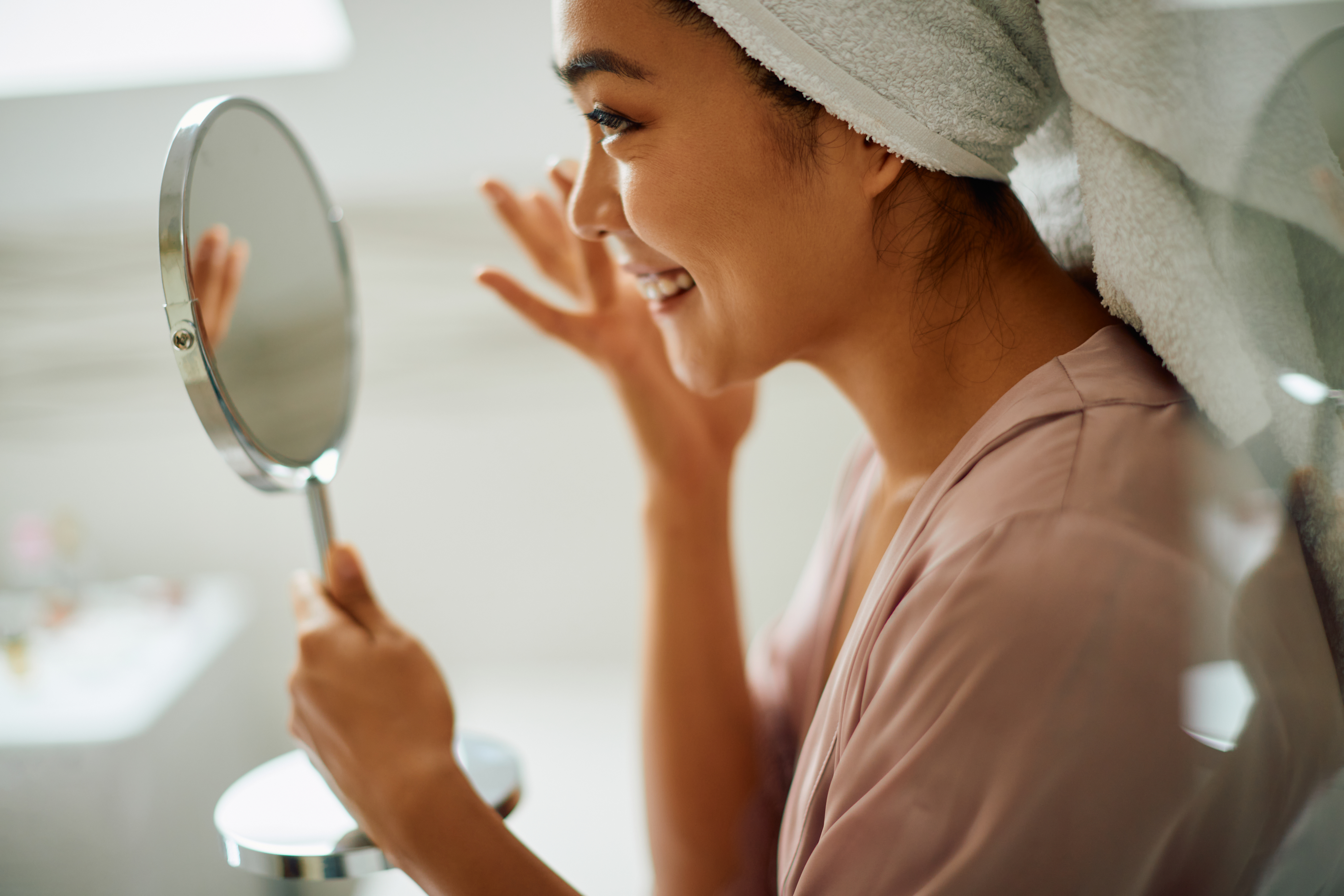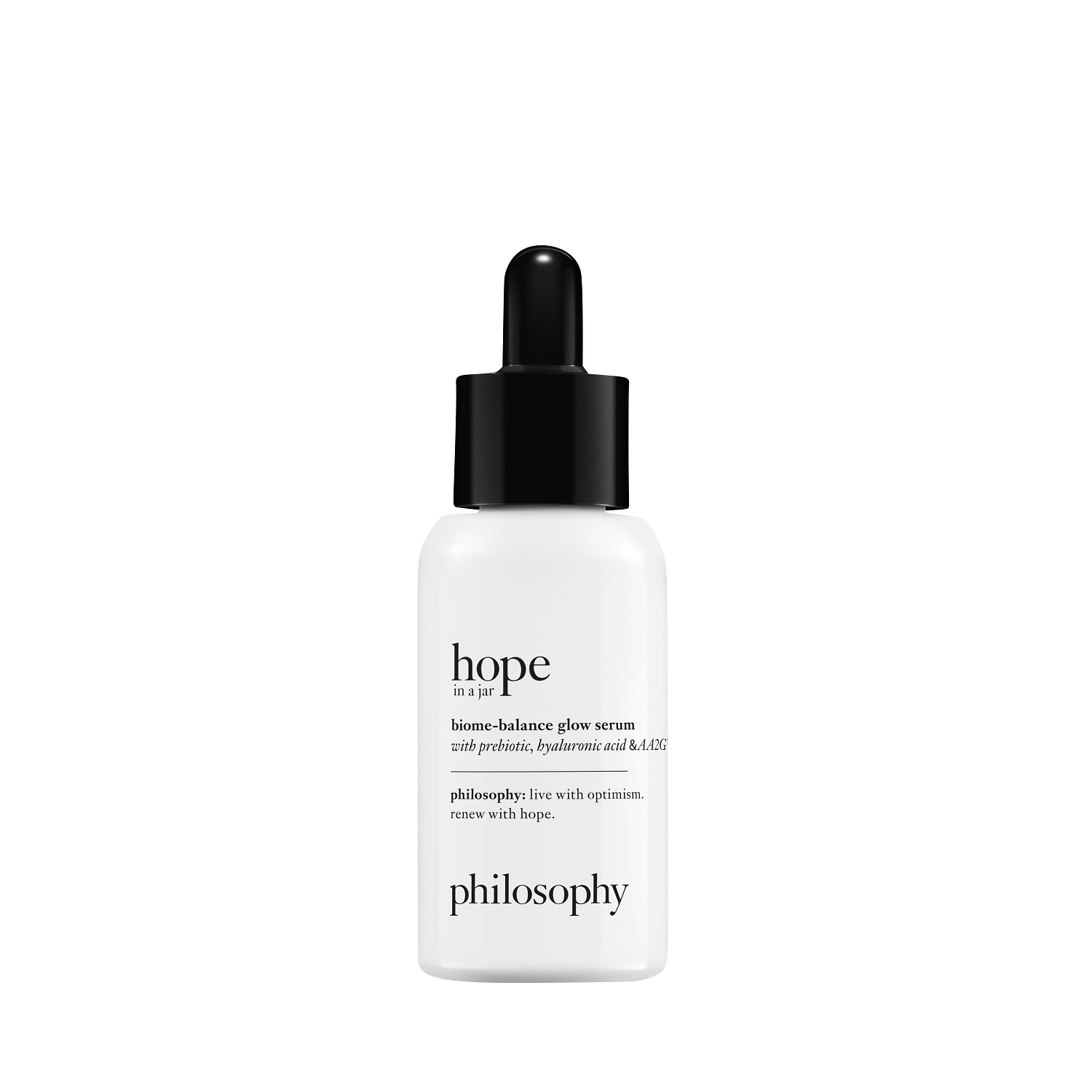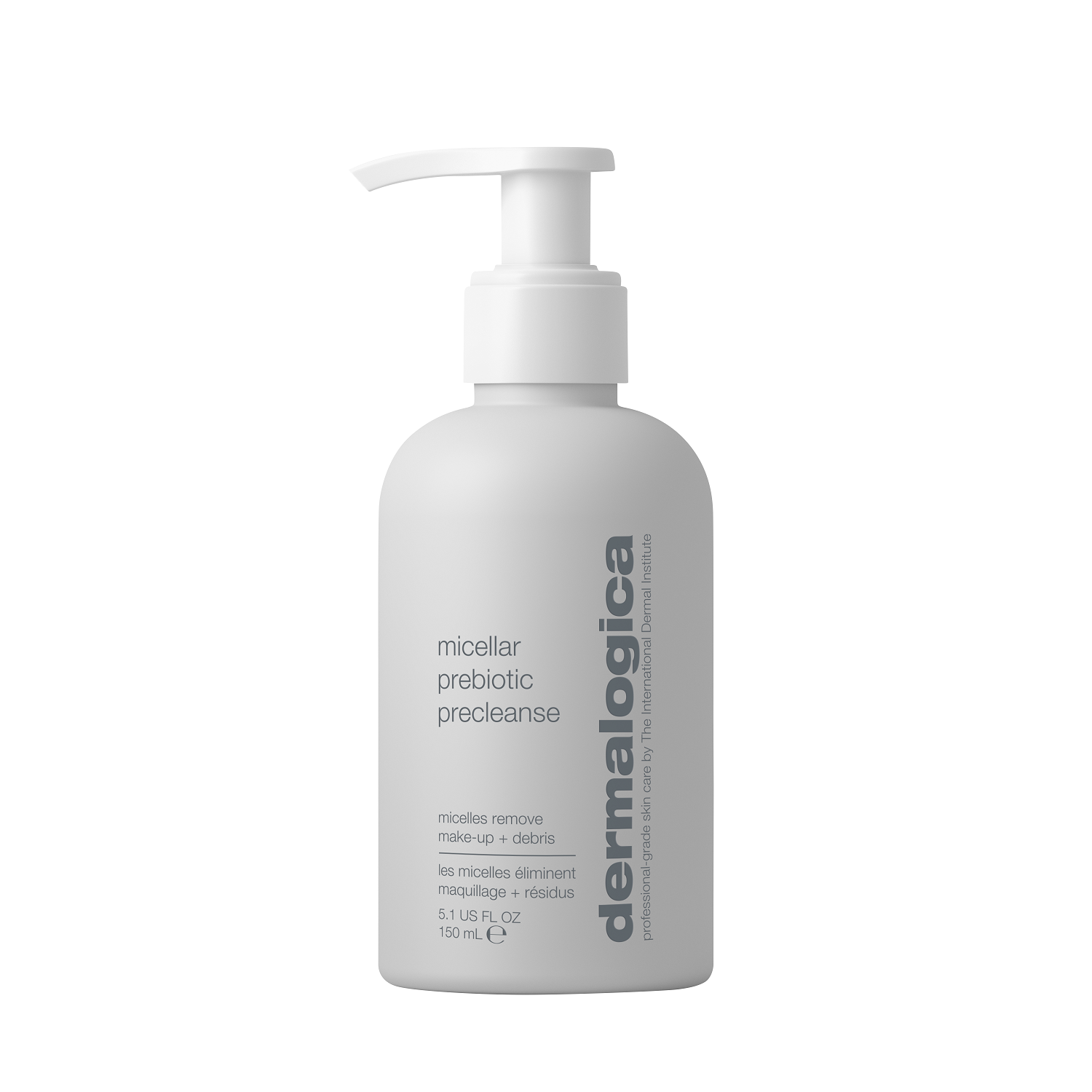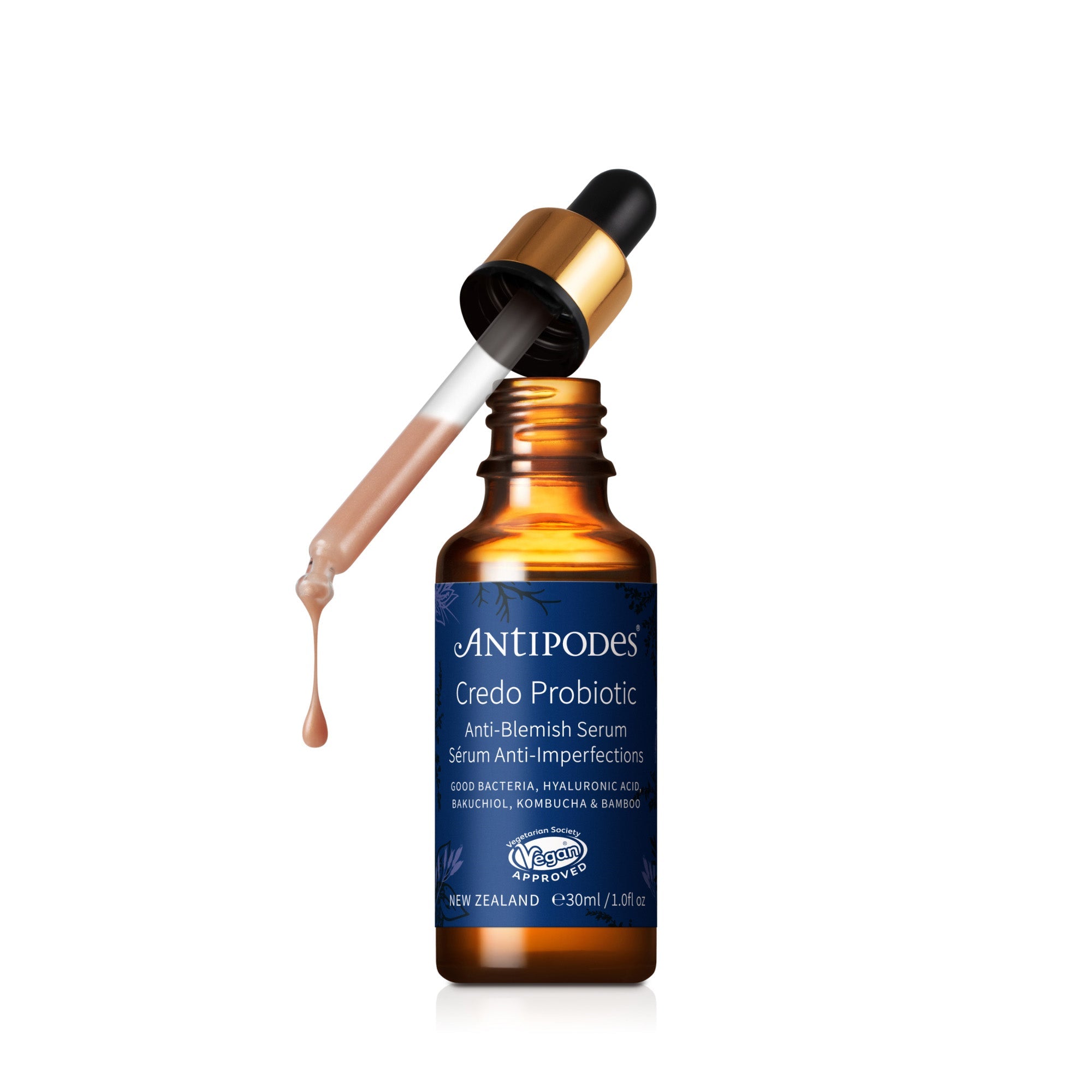There is an abundance of intriguing claims circulating about skin. It’s three times heavier than the brain, the size of a single bedsheet, and each square inch has six metres of blood vessels… but zoom in beyond what the natural eye can see and the skincare science starts to sound almost alien.
Millions – even billions if you’re particularly popular – of tiny bacteria live, work and play on your complexion. Just 10 years ago, scientists thought it was 200 but we now know the skin is second only to the gut in terms of sheer bacteria density. They’ve even been able to isolate particular strains. The vast majority of us, for example, have demodex folliculorum resting in our pores. These tiny microbes feed on the natural oils and – skip ahead if you’re squeamish – emerge to mate on our face at night.
“It’s true! Almost everyone has demodex on their skin,” says dermatologist Dr Shreya Andric. “There is a higher density in people with rosacea and it can contribute to flare-ups.”
If you’re not faced with a population explosion, should you give a hoot about these miniscule minions? Short answer: yes! Even if you can’t see them, they do actually play a huge role in skin health. So much so that scientists can now quite accurately determine your chronological age based on the diversity and number of microbes on your face.

“Our microbiome plays such a key role in the day-to-day functions of your body that it is now considered a supporting organ,” says Dr Rebekka Williams, a microbiome scientist and Head of Operations for skin and healthcare company biomiq. “When we think of skin, we typically think of our skin cells, but it is actually so much more. Skin cells and immune cells work symbiotically with equally as many bacteria, fungi and viruses that make up our skin microbiome.”
As Dr Andric explains, the microbiome is part of the physical outer layer that helps to “fight infection, support immune function, heal wounds and control inflammation”. When that delicate microbial balance is out of whack (the technical term is dysbiotic), you start to see issues like dryness, eczema, dermatitis and acne. “An imbalanced skin microbiome leads to increased permeability and, when the barrier is compromised, toxins can get through or trigger an inflammatory immune response,” says Dr Williams.
Healthy skin has a healthy microbiome. The trouble is, there’s no obvious way to know if the microbes on your face are all co-habiting convivially or if a bunch of aggressors are preparing a coup d’état until the visible signs emerge. But what we do know is this: Microbes are generally quite good at maintaining a peaceful democracy if you offer them the right conditions.
It starts with skinimalism – only using what you need – so that the beneficial bacteria don’t get smashed by aggressive actives or stripped off with over-zealous cleansing. Those, thankfully, are avoidable issues. Yet pollution, humidity levels and UV are trickier to counter – hence the boom in probiotic skincare where, in theory, you can reintroduce a colony of the ‘good’ to balance those that have gone rogue.
Probiotics are even creeping into new product categories beyond skincare. Clarins adds it to its latest make-up primer, and haircare brand Straand uses it in its scalp products. “Instead of scrubbing, eradicating, and effectively sterilising our skin each day, science is telling us that to have healthier skin the microbiome should be nourished and given support,” says Dr Williams.

Some experts now recommend a tribiotic assault: prebiotics (they feed the probiotics), probiotics (the live bacteria, which in skincare form must be encapsulated to survive until the jar is empty), and postbiotics (the fermented by-product). All three support the microbiome to produce the nourishing fatty acids, ceramides and lipids that keep skin plump and healthy. If you’re not sure if your skincare contains any biotics, look for ingredients like lactobacillus, bifidobacterium, vitreoscilla, rhamnose, lactic acid and lysates.
Research on how gut microbes might influence skin health is also booming. “It turns out healthy skin really does start in the gut,” says Michaela Sparrow, a clinical nutritionist, naturopath and anti-ageing practitioner. “When the gut microbiome is healthy and given the right food, it generates short-chain fatty acids and other metabolites that strengthen the skin barrier and enhance the skin’s own microbiome. Gut health also affects hormonal balance, which plays an important role in skin hydration and sebum production.”
While skin microbiome science is still in its infancy, the field is rapidly evolving. “The skin microbiome, just like the gut, isn’t just trending, it is vital to our health,” says Dr Williams. “The increasing demand for products that are not just microbiome-friendly but that promote a healthy microbiome demonstrates that microbiome skincare isn’t the future. It’s already here.”
Dr Williams’ top three tips for a healthy skin microbiome:
1. Skinimalism:
Minimise the number of products and switching between different formulations. The skin microbiome can struggle to balance if it is bombarded with different formulations and chemicals each day.
2. Be choosy:
Avoid harsh chemicals, but also be careful with natural products. Many essential oils are actually detrimental to microbes.
3. Inside-out approach:
Eat well, drink plenty of water, prioritise quality sleep and exercise to nurture the mind, body and microbiome.












